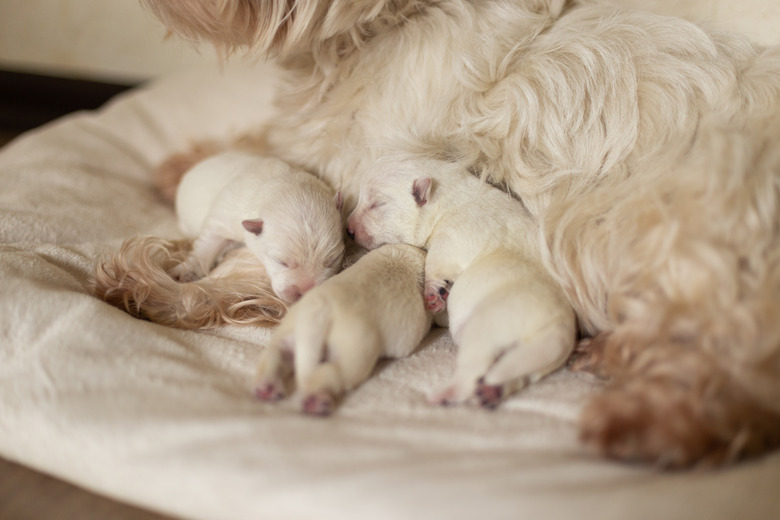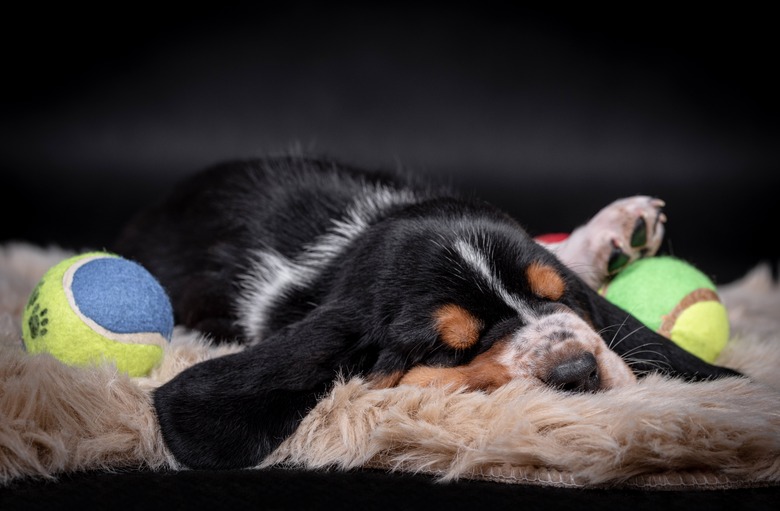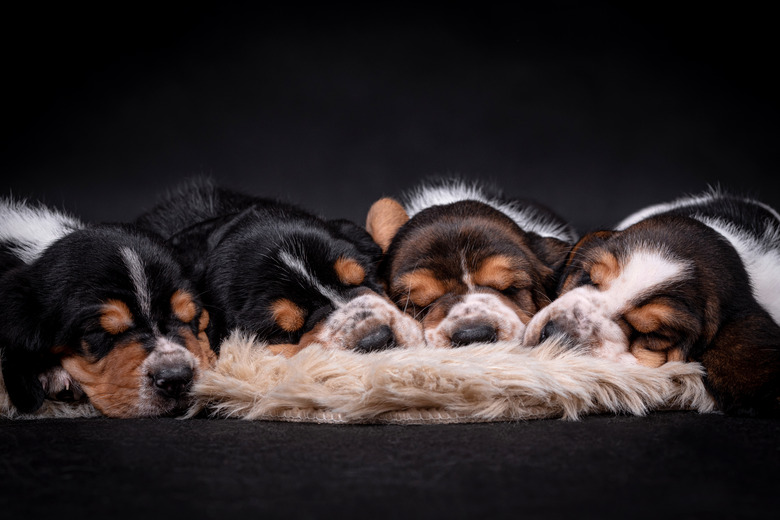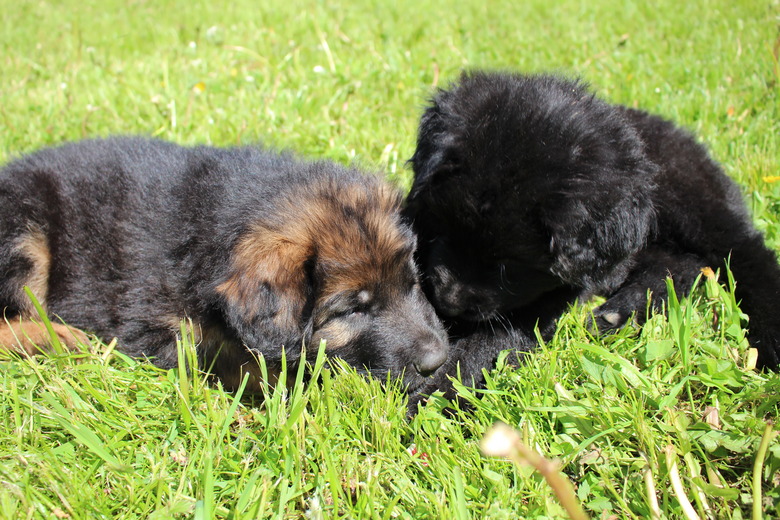How To Take Care Of The Mother Dog After She Gives Birth
How to Take Care of the Mother Dog After She Gives Birth
There is much joy and excitement when you have a dog pregnancy, knowing that puppies are coming. Then, there is relief when puppies arrive! But those emotions are accompanied by a large amount of work. Neonates require round the clock monitoring and care to ensure that they are thriving, says Dr. Ingrid Taylor, a veterinarian with 16 years of experience in general clinical and emergency practice and public health. However, the mother dog also requires just as much of your attention after giving birth. You will need to monitor her closely to ensure that she is eating and resting properly and that she remains healthy. Dr. Taylor told us more about this important topic.
Care for my dog after she gives birth
Care for my dog after she gives birth
If she needs to urinate or defecate after delivery, she should be accompanied outside by a person, and she should remain on a leash at all times. Bring a flashlight if it is dark outside so that you can note what she eliminates and if it looks abnormal in any way. Pay attention to her while she is outside and do not take her out if she is having active contractions, as you don't want a puppy being born in the yard.
"Take the mother dog and newborn puppies to be examined by a veterinarian within 48 hours after birth," says Dr. Taylor. "But get veterinary care right away if you suspect there are puppies remaining in her uterus.
If delivery has stopped for more than 4 hours, if she's straining for more than 30 minutes and not producing a puppy, or if she seems to be in pain are all indicators that the mother needs veterinary care right away. The veterinarian will confirm via palpation, ultrasound, or X-ray what the situation is. They will also check over each puppy to be sure they don't have any defects, such as cleft palates or hernias, and ensure they are all in good health.
What to feed a female dog after giving birth
What to feed a female dog after giving birth
A nursing dog has special nutritional needs to nurse and care for puppies and stimulate milk production. Her weight should be monitored throughout nursing to ensure she is being fed enough to compensate for the energy requirements and calorie depletion that lactation causes. You should feed a mother dog a high-quality, all-life-stages dog food or puppy food.
"Depending on the litter size, she will likely require increasing her food intake from two to four times her daily ration during the height of nursing right up until weaning," explains Dr. Taylor. Give her food multiple times throughout the day, or she can be given free choice by keeping her dish full at all times. Dr. Taylor goes on to say that it is preferable to leave the food out for her for free choice so she can eat whenever she needs to.
"The mother dog should always have water and food available," says Dr. Taylor. "Place the dishes somewhere she can reach them, but where the puppies won't fall into them."
You can place them outside of the whelping box but offer them to the mother every two to three hours if she is unwilling to leave her puppies.
Clean puppies, clean mother, clean box
Clean puppies, clean mother, clean box
Cleanliness is a huge part of raising a litter of puppies because puppies are very messy. The whelping box and the mother should be kept as clean as possible. Change the bedding of the whelping box (or kennel, if that's what you used) at least once a day to avoid any odors.
After giving birth, the new mother will have a heavy, odorless bloody discharge from the vulva for several days, gradually decreasing in amount and darkening over the next two to three weeks. Sometimes, this discharge will get on the puppies, requiring them to be cleaned. Some mother dogs will clean them on their own, but sometimes, you must help. "Use a dampened, warm cloth to wipe the discharge off the puppy and a soft, dry towel to gently wipe them dry," explains Dr. Taylor.
Postpartum care for dogs
Postpartum care for dogs
Even if everything seems to be going well with the mother and healthy puppies, there are specific things to watch out for following delivery. Dr. Taylor says to contact a veterinarian if the mother dog seems listless; becomes uninterested, agitated, or aggressive toward the puppies; has a fever; or has a loss of appetite; or if she won't let the puppies nurse.
With a lactating dog, examine each mammary gland and nipple once a day for redness, hardness, discharge, or streaking color to ensure that mastitis does not develop. "If mastitis does develop, you should contact a veterinarian immediately," says Dr. Taylor. "If caught early, milking out the affected gland and applying warm compresses can provide some relief, but don't try this without seeing your veterinarian first."
Care for a mother dog after birth
Care for a mother dog after birth
"Let the mother spend as much time as possible with the puppies in the first weeks," says Dr. Taylor. However, as they start to become more active, make sure the dog has an area close to but separate from the whelping box where she can take a break from the puppies. The mother dog will need a place to rest away from the puppies but will still need to be within close reach of them if they need her.
Puppies will start to wean themselves around 6 weeks of age, but it is important for them to have as much time as possible with their mother to ensure appropriate physical and social development. Puppies should remain with their mother and littermates until they are at least 8 to 10 weeks old.
Hair loss during dog pregnancy is normal
Hair loss during dog pregnancy is normal
You may notice a lot of hair loss if you have a pregnant dog. During pregnancy, a large amount of the dog's hair may enter into the resting phase of the hair growth cycle, resulting in large losses of hair, frequently in clumps once the puppies have weaned. When the new hair grows in, it may be darker and more coarse. Use an appropriate brush to groom the dog daily to remove clumps and increase circulation. Any hair loss that is accompanied by itching, scaling, or scabbing needs to be assessed by a veterinarian to rule out mites, infections, or other causes not associated with whelping and nursing.
The bottom line
The bottom line
Puppies can be a lot of fun, but they are also a lot of work and so is caring for dogs after giving birth. Spaying and neutering your pets is recommended to help prevent unwanted or accidental litters that contribute to pet overpopulation. Postpartum care for dogs includes daily monitoring for any signs of sickness, weight loss, or behavioral issues toward the puppies. Consult with a veterinarian to determine if safety and use is approved for pregnant or nursing mothers before administering any medications or supplements and always check with your veterinarian before changing your pet's diet, medication, or physical activity routines.



